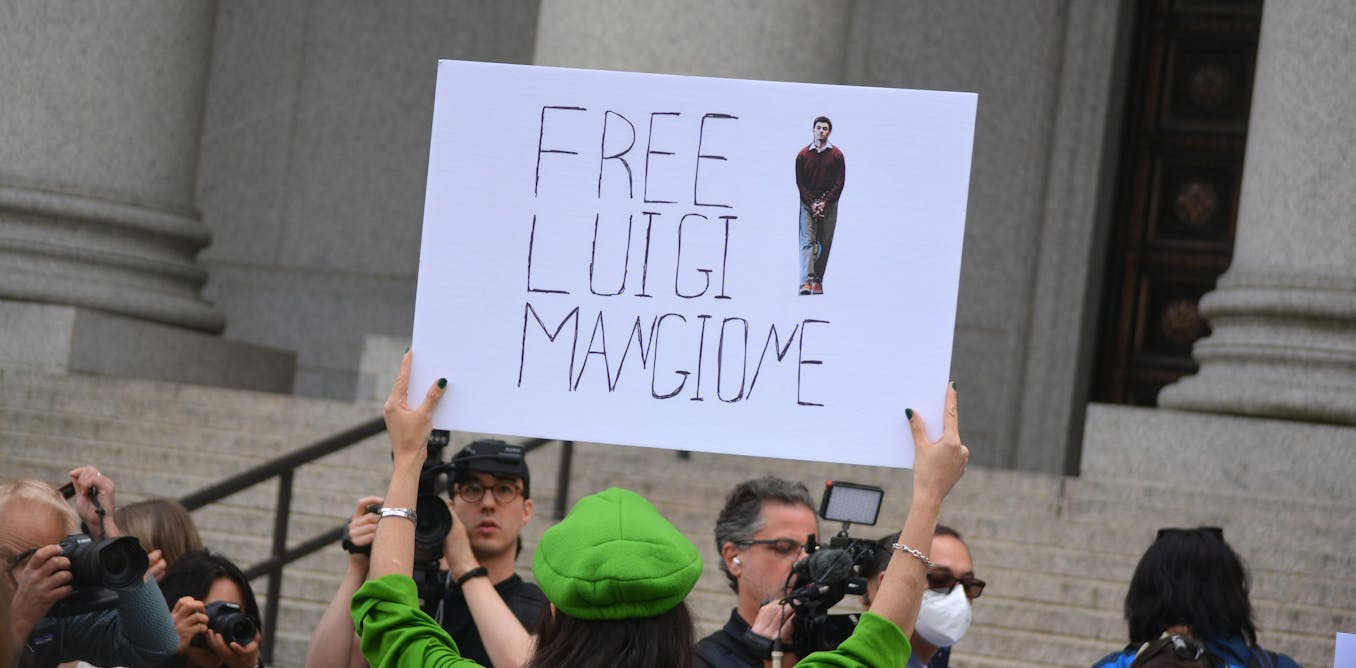Science
Workplace Burnout Linked to Rise in Extremist Thinking, Study Finds

Recent events surrounding the arrest of Luigi Mangione for the alleged murder of the CEO of UnitedHealthcare have sparked a complex public discourse on the justification of violence. Following the December 2024 incident, polls indicated that nearly 41% of young adults viewed the action as acceptable, raising questions about the factors that lead individuals to support extreme violence. A new study published in the special issue “Understanding Violent Extremism” of the APA Journal Psychology of Violence suggests that workplace burnout may play a critical role in this troubling phenomenon.
The study finds that many workers express feelings of frustration stemming from systemic issues in their work environments. Mangione’s manifesto, which highlights “corruption and greed,” resonates with a growing dissatisfaction among employees, contributing to a climate where extremist ideologies gain traction.
Understanding the Burnout to Extremism Connection
Researchers conducted daily surveys with over 600 employees to explore the relationship between burnout and extremist attitudes. Participants reported their levels of burnout, emotional states, and sympathies toward extremist ideas. The results revealed that increased burnout corresponded with heightened acceptance of violence as a response to perceived injustices. Burnout often breeds negative emotions such as fear, sadness, shame, and guilt, which some individuals seek to alleviate by embracing extremist beliefs.
This relationship can be understood through established psychological theories. General Strain Theory posits that everyday frustrations can lead to violent extremism by generating negative emotional responses. The existential model of burnout suggests that a perceived lack of meaning in work can drive individuals toward radical beliefs as a means of restoring purpose. Finally, Significance Quest Theory indicates that when individuals feel a lack of personal significance, they may turn to extremism in their search for meaning.
While the study does not imply that all individuals experiencing burnout will resort to violence, it highlights how persistent burnout can shift attitudes toward violence. This shift poses a significant risk to social structures, as normalizing extremist views can erode cohesion within communities and democracies.
The Urgency of Addressing Workplace Burnout
Workplace burnout has become alarmingly prevalent, affecting approximately 75% of employees globally. Although most individuals experiencing burnout will not engage in violence, the societal implications are concerning. An environment that tolerates extremist attitudes risks normalizing destructive behaviors, undermining democratic values and workplace integrity.
The study emphasizes the importance of perceived organizational support as a protective factor. Employees who feel valued and recognized by their organizations are less likely to gravitate toward extremist ideologies, even when dealing with burnout. However, this support is most effective when provided before negative emotions take root. Once employees reach an emotional crisis, additional support may struggle to prevent the shift toward extremist attitudes.
Employers play a crucial role in mitigating burnout, necessitating proactive strategies to foster a supportive workplace culture. This includes promoting fairness and transparency, ensuring employees feel appreciated, and training managers to identify early signs of burnout. Organizations also need to establish safe channels for feedback, allowing employees to voice their concerns.
The societal implications of burnout extend beyond the workplace. Broader perceptions of injustice can exacerbate extremist sympathies, particularly for individuals already feeling mentally exhausted. The case of Mangione illustrates how political agendas, such as the pursuit of the death penalty for him, may deepen feelings of systemic unfairness, potentially fueling radical views.
As both workplaces and societies grapple with rising extremist sentiment, understanding the psychological triggers behind such attitudes is essential. Burnout signifies more than mere exhaustion; it highlights a deeper existential vulnerability. A workplace that neglects employee burnout not only risks productivity but also creates fertile ground for radicalization.
Recognizing and addressing burnout is crucial in maintaining a sense of meaning, stability, and connection for employees. If workplaces fail to provide this support, extremist ideologies may fill the void, leading to consequences that extend well beyond office walls. Employers must prioritize the mental health and well-being of their workforce, not just as a health initiative, but as a fundamental strategy for societal stability.
-

 Entertainment3 weeks ago
Entertainment3 weeks agoAimee Osbourne Joins Family for Emotional Tribute to Ozzy
-

 Politics4 weeks ago
Politics4 weeks agoDanny Healy-Rae Considers Complaint After Altercation with Garda
-

 Top Stories1 month ago
Top Stories1 month agoFianna Fáil TDs Urgently Consider Maire Geoghegan-Quinn for Presidency
-

 World1 month ago
World1 month agoHawaii Commemorates 80 Years Since Hiroshima Bombing with Ceremony
-

 Top Stories1 week ago
Top Stories1 week agoIreland Enjoys Summer Heat as Hurricane Erin Approaches Atlantic
-

 World1 month ago
World1 month agoGaza Aid Distribution Tragedy: 20 Killed Amid Ongoing Violence
-

 World1 month ago
World1 month agoCouple Convicted of Murdering Two-Year-Old Grandson in Wales
-

 World1 month ago
World1 month agoAristocrat Constance Marten and Partner Convicted of Infant Murder
-

 Top Stories1 month ago
Top Stories1 month agoClashes Erupt Between Far-Right Groups and Migrants in Spain
-

 Top Stories1 month ago
Top Stories1 month agoHistoric Dalkey Pub The Queens Reopens Under New Management
-

 World1 month ago
World1 month agoTrump Defends FBI Deputy Director Amid Epstein Files Controversy
-

 Politics1 month ago
Politics1 month agoTragic Crowd Surge at Gaza Aid Center Claims 20 Lives









